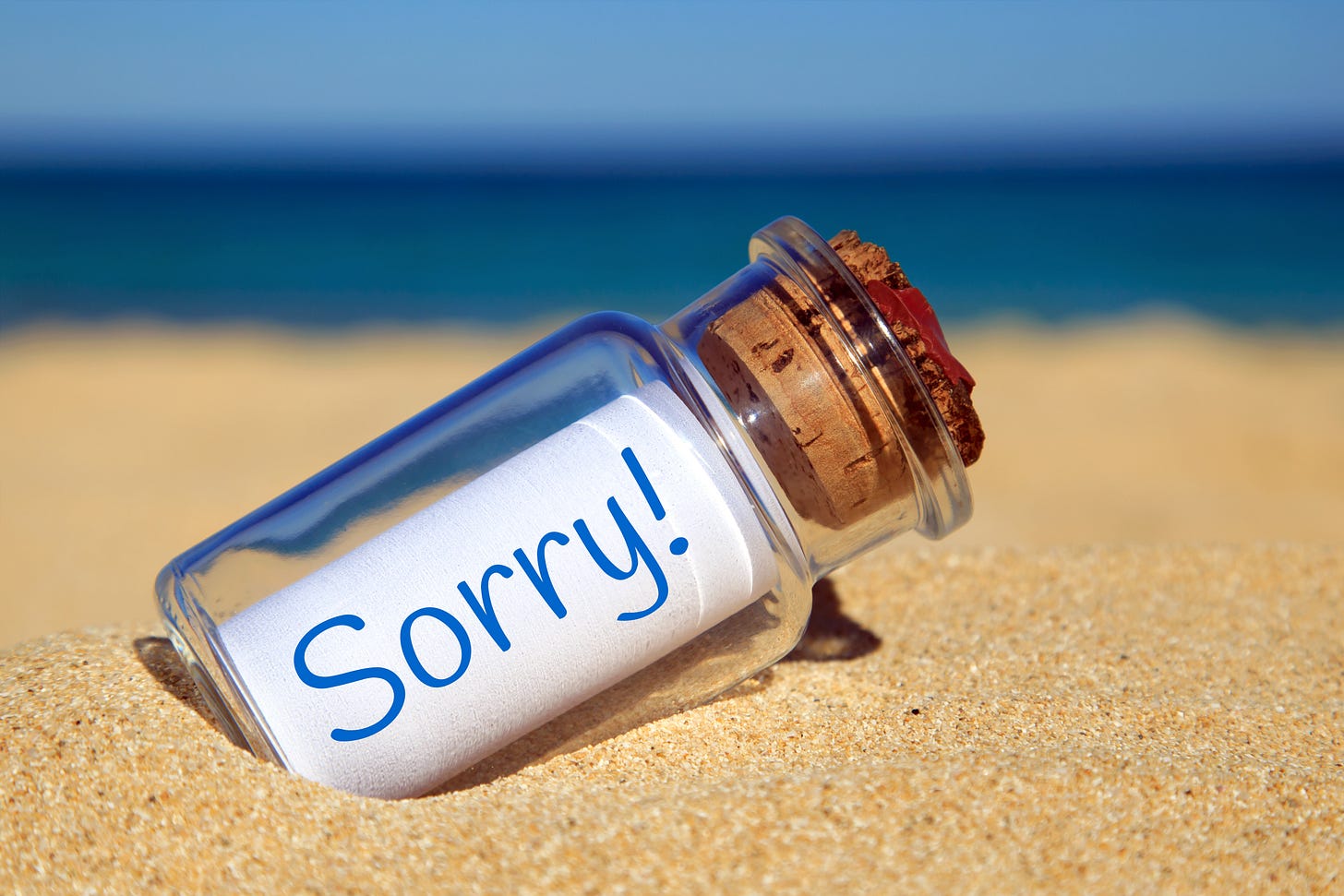What Makes a Good Apology?
Why does sorry seem to be the hardest word? How can we move beyond hurt to reconciliation? Marjorie Ingall and Susan McCarthy break it down, step by step.
The worst apology I ever received, from someone I loved, was this: “I’m sorry for what you think I did.” [Editor’s note: they definitely did it, and that’s not an apology.] The best apology was from my rapist. The story’s too long to go into, but you can read about it here or watch a news segment about it here.
All this to say a good apology has the ability to provide closure and healing for even the most heinous of crimes, and a bad apology can actually make things worse.
Marjorie Ingall and Susan McCarthy know a lot about apologies. They started years ago by creating SorryWatch, a website that analyzes apologies in the media. I’ve been an avid follower of their work since its inception. They are not only smart about the art of a good apology, they infuse their work with often side-splitting humor. So when I found out they’d written a whole frigging book on the art of a good apology—Sorry, Sorry, Sorry: The Case for Good Apologies—I unapologetically hunted them down and asked them do both a Zoom with me and complete a written Q&A, both of which can be found below.



Do I feel bad about making them work twice as hard to provide you with critical information about reconciliation? No. I do not. The more we can learn about apologies in this dangerously divided era, the better. Plus I loved both our conversation and their written answers so much, I will never apologize for my enthusiasm in sharing their wisdom. I know, from a deep well of experience with the long-lasting effects of trauma, that a good apology has the power to transform two lives and psyches, both the apologizer’s and the recipient’s.
In fact, I wish our laws and courts would focus more on restorative justice than on building jails. I wish couples getting married would receive coaching, before walking down the aisle, on basic conflict resolution. I wish kids in school were taught how, when, and why to say, “I’m sorry,” from the moment they learn to hold a pencil. I wish all of us could learn to be more vulnerable, remorseful, and forgiving when we do or receive harm in our interpersonal relationships. Until then, all of us would do well to read Ingall and McCarthy’s book.
What makes a good apology? The authors say that if you break it down into the following six steps, you can’t go wrong.
Keep reading with a 7-day free trial
Subscribe to Ladyparts to keep reading this post and get 7 days of free access to the full post archives.





